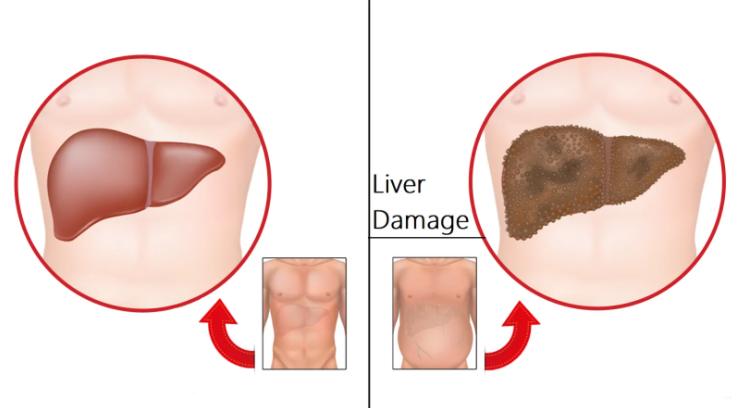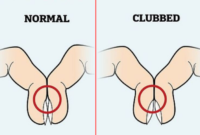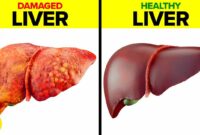A properly functioning liver is vital to our health. Liver disease rates are steadily increasing over the years. According to National statistics in the UK, liver diseases have been ranked as the fifth most common cause of death. Liver diseases are recognized as the second leading cause of mortality amongst all digestive diseases in the US.
Health, Science, Cool Stuff, Exercise, Food, Cool Stuff, Exercise, Bodybuilding, Workouts, Fitness, The Brain, Health Care, Healthy Eating, Women, Women’s Health, Food & Dining, Cool Stuff, Exercise, Bodybuilding, Workouts, Fitness, Depression, Aging, Cool Stuff, Beauty, Motivation, Self-Improvement, Innovation, Culture, Cool Stuff, Exercise, Energy, Education, Cool Stuff, Kids, Parenting, Love, Happiness, Relationships, Cool Stuff, Exercise, Meditation, Mindfulness, Cool Stuff, Exercise, Bodybuilding, Workouts, Fitness, Sleep, Yoga, Cool Stuff, Spirituality, News, Politics, Health, Science, Cool Stuff, Cool Stuff, Exercise, Bodybuilding, Workouts, Fitness, Love, Friendships, Management, Leaderships, Productivity, Business, Fashion, Celebrity News, Cool Stuff, Fashion Trends, Health, Science, Health, Science, Cool Stuff, Cool Stuff, Exercise, Bodybuilding, Workouts, Fitness, Food, The Brain, Health Care, Healthy Eating, Women, Cool Stuff, Women’s Health, Cool Stuff, Exercise, Food & Dining, Depression, Aging, Cool Stuff, Beauty, Motivation, Self-Improvement, Innovation, Cool Stuff, Health, Science, Cool Stuff, Culture, Energy, Education, Cool Stuff, Kids, Parenting, Love, Happiness, Relationships, Meditation, Mindfulness, Sleep, Yoga, Cool Stuff, Spirituality, News, Cool Stuff, Exercise, Politics, Love, Friendships, Management, Health, Science, Cool Stuff, Leaderships, Productivity, Business, Fashion, Celebrity News, Fashion Trends, Health, Science, Food, Cool Stuff, Exercise, The Brain, Health Care, Healthy Eating, Women, Women’s Health, Food & Dining, Depression, Aging, Health, Science, Cool Stuff, Cool Stuff, Exercise, Bodybuilding, Workouts, Fitness, Cool Stuff, Beauty, Cool Stuff, Exercise, Motivation, Self-Improvement, Innovation, Culture, Energy, Education, Cool Stuff, Kids, Parenting, Love, Happiness, Cool Stuff, Exercise, Relationships, Meditation, Mindfulness, Health, Science, Cool Stuff, Sleep, Yoga, Cool Stuff, Spirituality, News, Politics, Love, Friendships, Management, Leaderships, Cool Stuff, Exercise, Productivity, Business, Fashion, Celebrity News, Cool Stuff, Fashion Trends, Health, Science, Food, Health, Science, Cool Stuff, The Brain, Cool Stuff, Exercise, Health Care, Healthy Eating, Cool Stuff, Exercise, Bodybuilding, Workouts, Fitness, Women, Cool Stuff, Women’s Health, Food & Dining, Depression, Health, Science, Cool Stuff, Aging, Cool Stuff, Beauty, Motivation, Cool Stuff, Exercise, Bodybuilding, Workouts, Fitness, Self-Improvement, Innovation, Cool Stuff, Culture, Energy, Cool Stuff, Exercise, Bodybuilding, Workouts, Fitness, Education, Cool Stuff, Kids, Parenting, Love, Happiness, Relationships, Meditation, Cool Stuff, Exercise, Bodybuilding, Workouts, Fitness, Mindfulness, Sleep, Yoga, Cool Stuff, Spirituality, News, Politics, Love, Friendships, Management, Cool Stuff, Exercise, Bodybuilding, Workouts, Fitness, Leaderships, Productivity, Business, Cool Stuff, Exercise, Fashion, Celebrity News, Fashion Tren
The potential causes of liver damage are numerous and include heredity (i.e., genetic predisposition), long-term liver diseases (ex: cirrhosis), and prolonged exposure to toxic substances. It is important to understand potential signs of liver damage in order to preserve our health and well-being.
1. FATIGUE
Various research has concluded that chronic fatigue and exhaustion are the most common symptoms of liver damage. Medical professionals speculate that liver-related fatigue and exhaustion is a byproduct of neurochemical changes in the brain and hormonal imbalances.
Exacerbating the feelings of fatigue and exhaustion are elevated levels of toxic byproducts in the blood, which an impaired liver cannot properly eliminate.
2. DRY OR IRRITATED SKIN
Irritated and itchy skin that seems to persist is another potential indication of liver damage. To be healthy, our skin requires moisture via transmission of fluids within the body. When this fluid is not adequately supplied, it is not uncommon for the skin to take on a different appearance; this includes reddening of the hands or feet, yellowing of the mucous membranes (i.e., jaundice), or inexplicable spotting (dark or light) in certain areas.
3. ABDOMINAL PAIN
If the liver is damaged, it is common to feel pain around the abdominal area. Patients often describe this pain as “stabbing” or “throbbing” – a symptom often relieved only through proper treatment of the underlying issue.
Long-term use of some types of over-the-counter (OTC) or prescription (Rx) medications can result in long-term liver damage. Those experiencing persistent abdominal pain of the stabbing or throbbing variety – and have used OTC or Rx medications for a substantial period – should visit a physician for evaluation.
glisson capsule,hepatocellular carcinoma treatment,rapid weight loss fatty liver,liver cancer treatment,common hepatic duct,hepatic duct,liver tumor treatment,easl 2021,alani nu balance lawsuit,new liver cancer treatment 2019,best liver detox,new liver cancer treatment 2020,nash diet,stage 4 liver cancer treatment,problems after liver transplant,secondary biliary cirrhosis,complications of hepatitis b,liver cancer age,cirrhosis ultrasound,life after liver transplant,breast cancer metastasis to liver end stages,livermd,liver doctors near me,biliary atresia,biliary atresia symptoms,liver specialist near me,secondary liver cancer final stages,alcoholic hepatitis treatment,fibrolamellar hepatocellular carcinoma,cirrhosis rash,liver md,cirrhosis skin rash,hepatocellular carcinoma pathology outlines,liverwell,sleisenger,fibrolamellar carcinoma,benign liver tumor symptoms,breast cancer metastasis to liver,liver clinic,liver cysts back pain,hepatocellular,keto and fatty liver,best liver support,li rads,hepatocellular cancer,hepatic cancer,liver fibrosis test,primary biliary cirrhosis treatment,liver cell carcinoma,hepatocellular carcinoma prognosis,primary biliary cirrhosis,types of chronic liver disease,liver specialist,normal liver function test,best liver support supplements,liver carcinoma,acute hepatic failure,liver cleanse detox,liver pathology,secondary liver cancer life expectancy,liver cancer surgery,hepatic carcinoma,acute alcoholic hepatitis,liver institute,stage 4 metastatic liver cancer life expectancy,best liver supplements,metastatic liver cancer stage 4,age spots on skin,liver function test cost,chronic hepatitis b treatment,pancreatic and liver cancer final stages,liver cancer blood test,liver transplant,best liver cleanse,liver transplant recovery,liver support supplement,liver function test price,bowel and liver cancer final stages,liver transplant cost,primary liver cancer,liver plus,liver support,liver and kidney failure life expectancy,hepatitis is an inflammation of the,viral hepatitis treatment,hepatocellular carcinoma,kidney and liver problems together,hepatitis c rash,stage 4 liver cancer survivors,liver location male,liver supplements,cholestatic,hepatic lesions,cholestatic hepatitis,best liver detox supplement,benign liver tumor,liver cirrhosis ultrasound,age spot treatment,hepatic mass,old age spots




